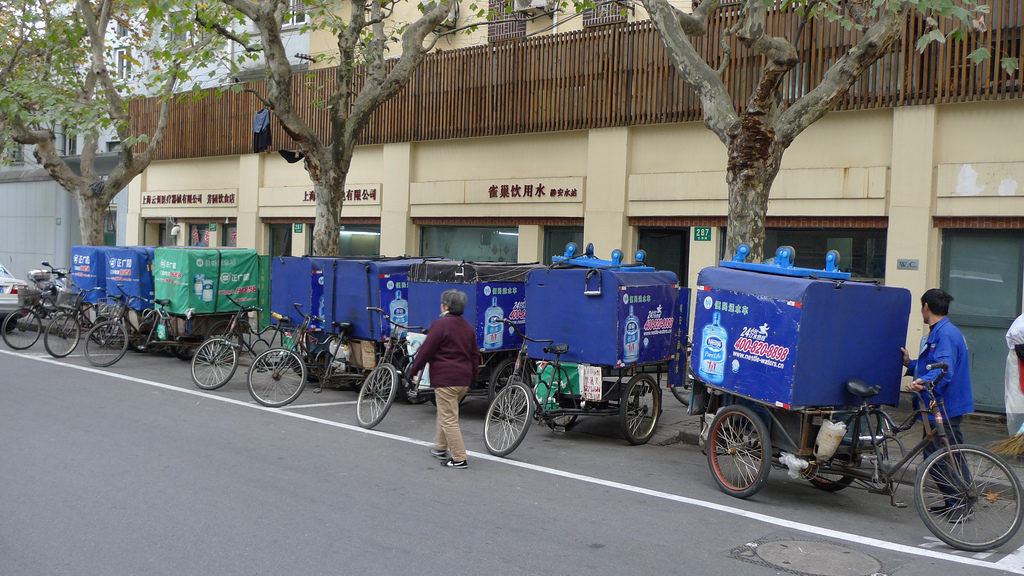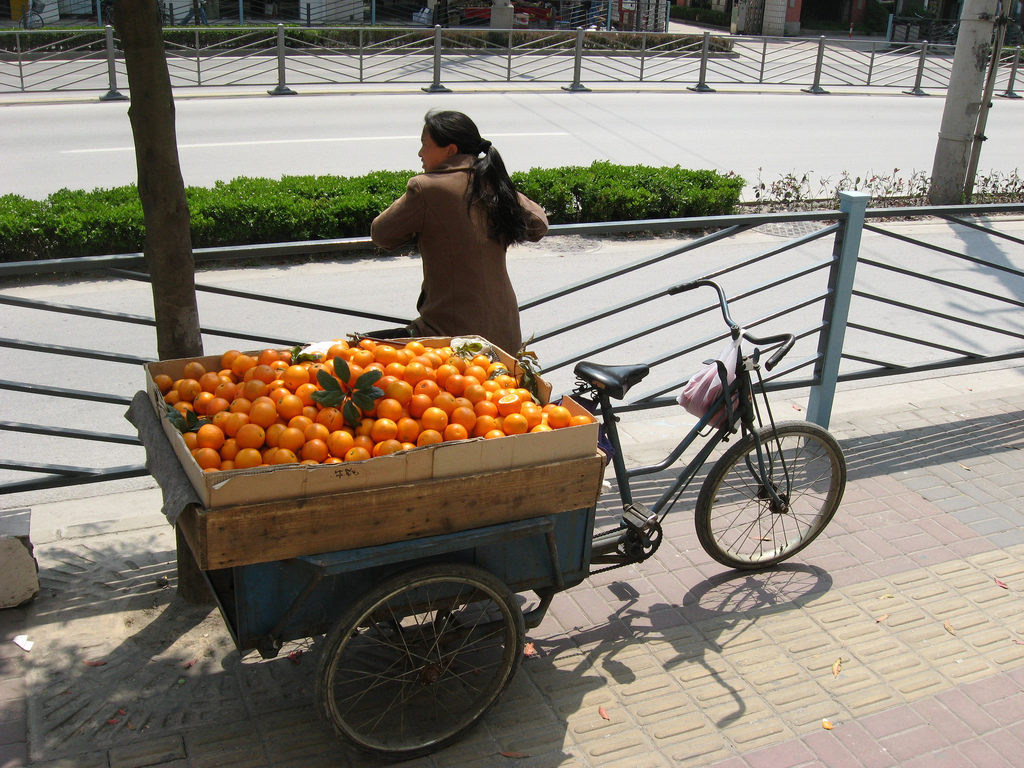By Jeanie Ward-Waller
The California Bicycle Coalition is the newest member of the California Cleaner Freight Coalition. CalBike’s mission is to enable more people to bicycle, for healthier, safer, and more prosperous communities for all. You may now be wondering, what does bicycling have to do with moving goods around our state?
A lot of things, actually. Most directly, dirty freight creates dirty air, which makes it harder to breathe when you’re bicycling, and causes asthma, especially in children walking or bicycling on our streets. Busy trucking and rail corridors create dangerous barriers to walking and bicycling, and make roads scarier places for people to walk or bike.
These issues are most deeply experienced by residents in environmental justice communities located near our ports, goods distribution centers, and major freight corridors. We want to make these neighborhoods safer and healthier places to get around on foot and by bike by powering trucks with clean electric engines, and by redesigning streets that carry freight traffic through these neighborhoods to prioritize the safety of residents over moving more trucks. State government can help by increasing incentives for zero-emission trucks and buses, and by ensuring that Caltrans and local transportation agencies design streets with the safety of people walking and bicycling at top of mind.
But in addition to caring about how our freight system impacts people’s ability to walk and bike, CalBike believes “active transportation” (i.e. bicycling and walking) can be an important part of the solution to improving our freight system.
Cargo bikes, especially those equipped with electric-assist motors, have enormous potential to replace short-haul delivery trucks in our denser communities. Delivery bikes could help make the air cleaner, streets safer and quieter, and save space for loading zones in shopping and dining districts. (And since many cargo bikes are manufactured by small businesses here in California, replacing trucks with these bike would have a positive economic impact on our state as well). With increasing demand for home delivery from services like Amazon Prime Now and Postmates, imagine how much pollution might be spared if most home deliveries in our cities were made by an electric cargo bike rather than a car or truck. A few major companies in the parcel-delivery business, such as DHL and UPS, are already testing out cargo bikes.

This idea is not as new and cutting-edge as it may sound. People all over the world have been using bicycles for moving goods in extremely creative ways since the two-wheeled machine was invented. And, as with getting more electric trucks on our roads, state incentives for companies to trade in dirty delivery trucks for cargo bikes would go a long way.
On congested freight corridors like I-710 in Long Beach, active transportation can help too. Giving people in private cars an alternative to sitting in traffic by biking or walking instead could take cars off those congested freeways and help freight trucks to move more freely. Creating attractive and convenient alternatives to driving would require building safe, connected networks of bikeways and walkways in neighborhoods adjacent to those freeways, networks that provide access to quality public transit systems for longer trips.
On the other hand, if we expand freight corridors like I-710 with new traffic lanes, widely accepted research shows that the new lanes will immediately begin to fill up with more cars and do nothing to expedite freight truck travel along those corridors. We need to be sure that our state and local governments are not investing many billions of dollars to expand freeways in a wasteful attempt to fix the freight congestion problem, when freeway expansion actually makes the problem worse. Instead, and for a fraction of the cost, the state could put those transportation dollars toward making the whole freight system cleaner and more efficient, and toward providing residents better alternatives to driving on congested freight corridors by improving walking, bicycling, and public transit facilities across the state.
Moving goods around our state and to the rest of the country is critical to California’s economy. For the health and well-being of all our residents, we must electrify, improve efficiency, and reduce the impacts of the freight sector on our communities, while continuing to support that sector’s growth. Bicycling can be an important part of the solution.
 Jeanie Ward-Waller is the Policy Director for the California Bicycle Coalition. She is trained as a civil engineer, but has found her award-winning passion in bicycle advocacy. Visit the California Bicycle Coalition at calbike.org.
Jeanie Ward-Waller is the Policy Director for the California Bicycle Coalition. She is trained as a civil engineer, but has found her award-winning passion in bicycle advocacy. Visit the California Bicycle Coalition at calbike.org.









A cleaner freight could also introduce the use of e-bike. Though yet could carry a huge amount of freight. The idea may seem not as innovative they pictured it to be. Helping to make the world better is good kind of investment plus it promotes exercising and cleaner airs.